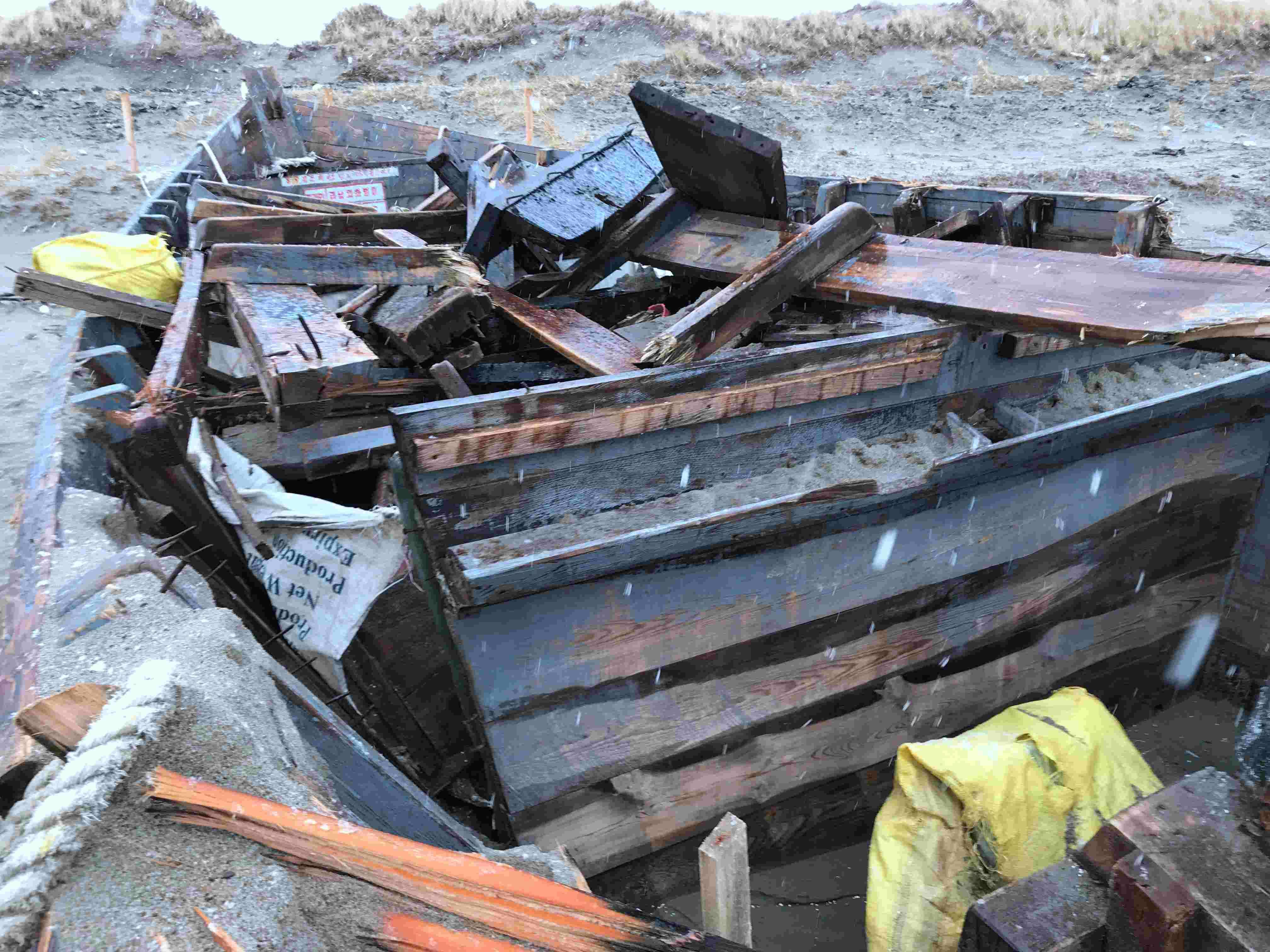
Politics
10:27, 21-Dec-2017
Ghost ships from DPRK haunt Japanese fishermen
By Terrence Terashima

Residents in Japan’s western coast of Yamagata prefecture had another uneasy night when more wreckage of what is believed to be a Democratic People's Republic of Korea (DPRK) fishing vessel washed up on Monday.
This year, Japan has seen a rapid increase in similar type of fishing vessels washing ashore - some intact, some heavily damaged and some washed up in parts. Japanese coastguards reported nearly 90 similar vessels this year.
The ships were mostly wooden, with Hangul characters written inside and out. Locals said sometimes they even found bodies or skeletons inside.

CGTN Photo
CGTN Photo
However, it was not the wreckage that made the people in the area anxious. This was called a ghost ship because there was no living person on board.
But this year, some DPRK ships with live crews landed in a number of locations. In some cases, they were apprehended or chased away by the Japanese coastguard, after looting houses in the islands of Hokkaido.
Seeing an increase in number of ghost ships or skeletons is one thing, but the possibility of encounters with a live crew is another.

CGTN Photo
CGTN Photo
Japan and the DPRK have engaged in numerous negotiations for decades, after numbers of Japanese were abducted from coastal towns. The Japanese government consider this as one of their top diplomatic agendas.
So it was only natural that residents became vigilant on thoughts of encountering fishermen from the DPRK. Many residents did not expect them to be friendly.
Moreover, many of the Japanese fishermen said to have been chased away by fleets of ships, with Hangul writing at their sides, within the Japanese EEZ.
Distrust among the Japanese fishing communities is strong.
Moreover, another cause of tension between the countries is DPRK's missile launches. Recently, northern Japan has been the direction of missiles launched from the DPRK. Some landed within Japan’s EEZ, west of Akita prefectures, but the most recent one flew over the northern part of Japan.
It is said that a growing number of fishermen are getting insurance for covering damages on their vessels or loss of life among the crews if something unfortunate happens.

SITEMAP
Copyright © 2018 CGTN. Beijing ICP prepared NO.16065310-3
Copyright © 2018 CGTN. Beijing ICP prepared NO.16065310-3